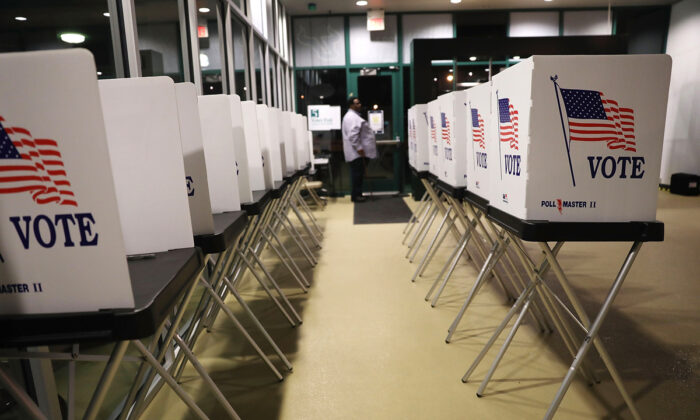‘Unhealthy Partisanship’: Move Afoot to Improve the Workings of Parliament
A federal appeals court ruled on Wednesday that Florida cannot bar ex-felons from voting over their failure to pay fines and fees related to their sentences.
The three-judge panel of the U.S. Court of Appeals for the Eleventh Circuit upheld a preliminary injunction from a lower court while the case plays out. The lower court’s injunction requires the state to allow the challengers in the cases, a group of 17 ex-felons, to register to vote if they can show that they are unable to pay off any restitution, court fees, and fines—collectively known as legal financial obligations (LFO)—and have completed other requirements.
“Because the LFO requirement punishes those who cannot pay more harshly than those who can … Supreme Court precedent leads us to apply heightened scrutiny in asking whether the requirement violates the Equal Protection Clause of the Fourteenth Amendment as applied to these plaintiffs,” the court wrote (pdf).
In November 2018, Florida passed an amendment, commonly referred to as Amendment 4, to the state’s constitution that allows ex-convicts to vote “upon completion of all terms of sentence including parole or probation,” but excludes those who were convicted of murder or felony sexual offense. Before the amendment, all former convicted felons were permanently disenfranchised without a grant of executive clemency.
Governor Ron DeSantis (R) subsequently signed a bill, Senate Bill 7066, last year mandating that all formerly incarcerated people pay off restitution, court fees, and fines before their voting rights are restored (pdf). The law faced intense opposition from voting rights advocacy groups, who argue that it denies people with felony convictions the right to vote and penalizes them based on their inability to pay off fees and fines.
The group of ex-felons then brought a lawsuit against state officials, challenging the constitutionality of the LFO requirement. The United States District Court for the Northern District of Florida consolidated the cases and issued a preliminary injunction in favor of the ex-felons, prompting the state to appeal.
In Wednesday’s ruling, the circuit court judges said they reviewed the case to see whether the district court had abused its power when issuing the preliminary injunction and found that the lower court did not. They found that, using Supreme Court precedent, the LFO requirement violates the Equal Protection Clause of the 14th Amendment.
“Here, these plaintiffs are punished more harshly than those who committed precisely the same crime—by having their right to vote taken from them likely for their entire lives,” the court wrote. “And this punishment is linked not to their culpability, but rather to the exogenous fact of their wealth.”
This comes after the Florida Supreme Court issued an advisory opinion (pdf) in January in favor of DeSantis’s interpretation of Amendment 4. The governor asked the state’s top court to clarify the meaning of the phrase “all terms of sentence” after its meaning was disputed by voting rights advocacy groups.
DeSantis and the state government argued that the phrase includes all terms of the sentence, including financial obligations ordered by the sentencing judge. Meanwhile, some advocacy groups argued that the phrase only includes periods of imprisonment and supervised release, while others say it includes some financial penalties but not others.
In its opinion, the state Supreme Court found that the phrase encompasses all obligations ordered by a sentencing court including financial ones such as fines, restitution, costs, and fees.
The American Civil Liberties Union (ACLU), who is representing the plaintiffs along with other civil rights groups, welcomed the circuit court’s decision in a statement.
“The court unanimously ruled that a person’s right to vote cannot be contingent upon their ability to pay, ” Julie Ebenstein, senior staff attorney with the ACLU’s Voting Rights Project, said. “This law is a modern-day poll tax. This ruling recognizes the gravity of elected officials trying to circumvent Amendment 4 to create roadblocks to voting based on wealth.”
Meanwhile, DeSantis’s Communications Director Helen Ferre said in a statement to The Epoch Times that they “disagree with the ruling.”
“We are going to seek en banc review by the full court,” Ferre said.
This article is from the Internet:Appeals Court Blocks Florida Law Barring Ex-felons From Voting Over Fines, Fees
